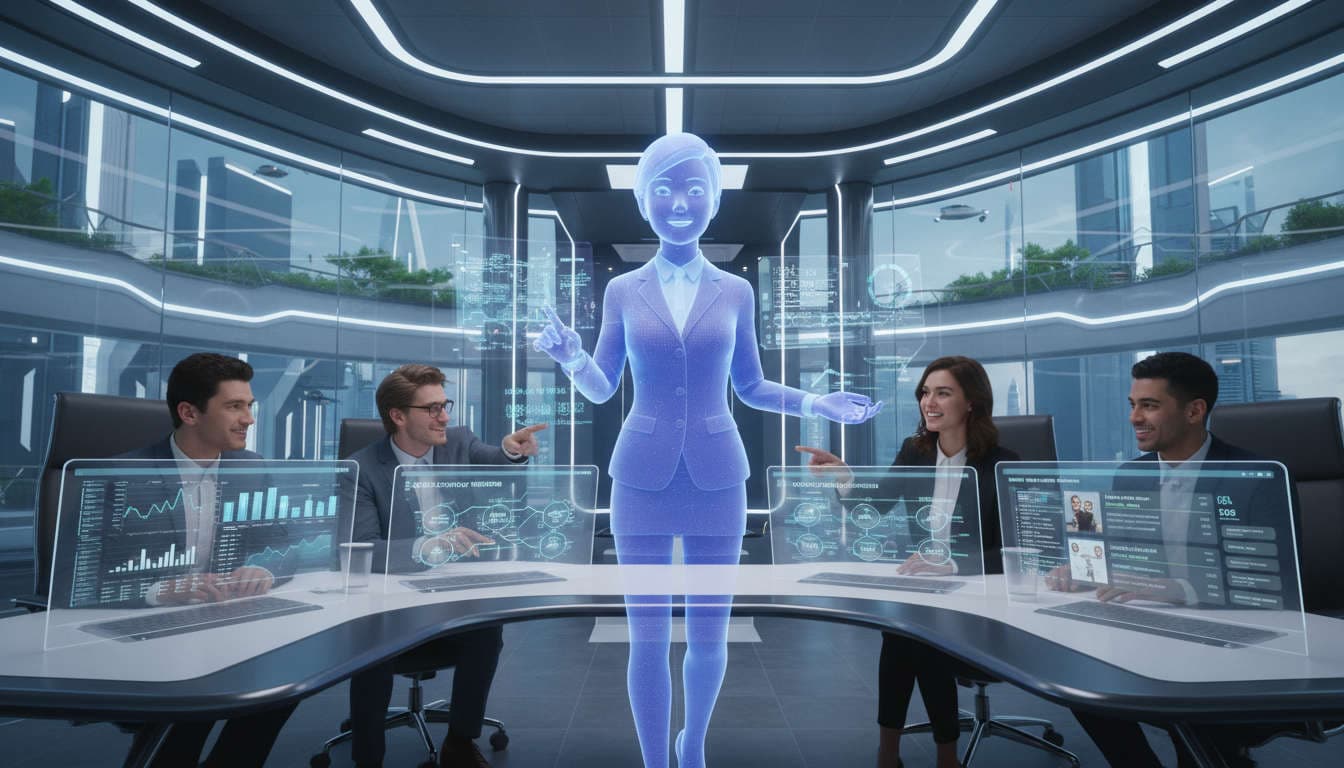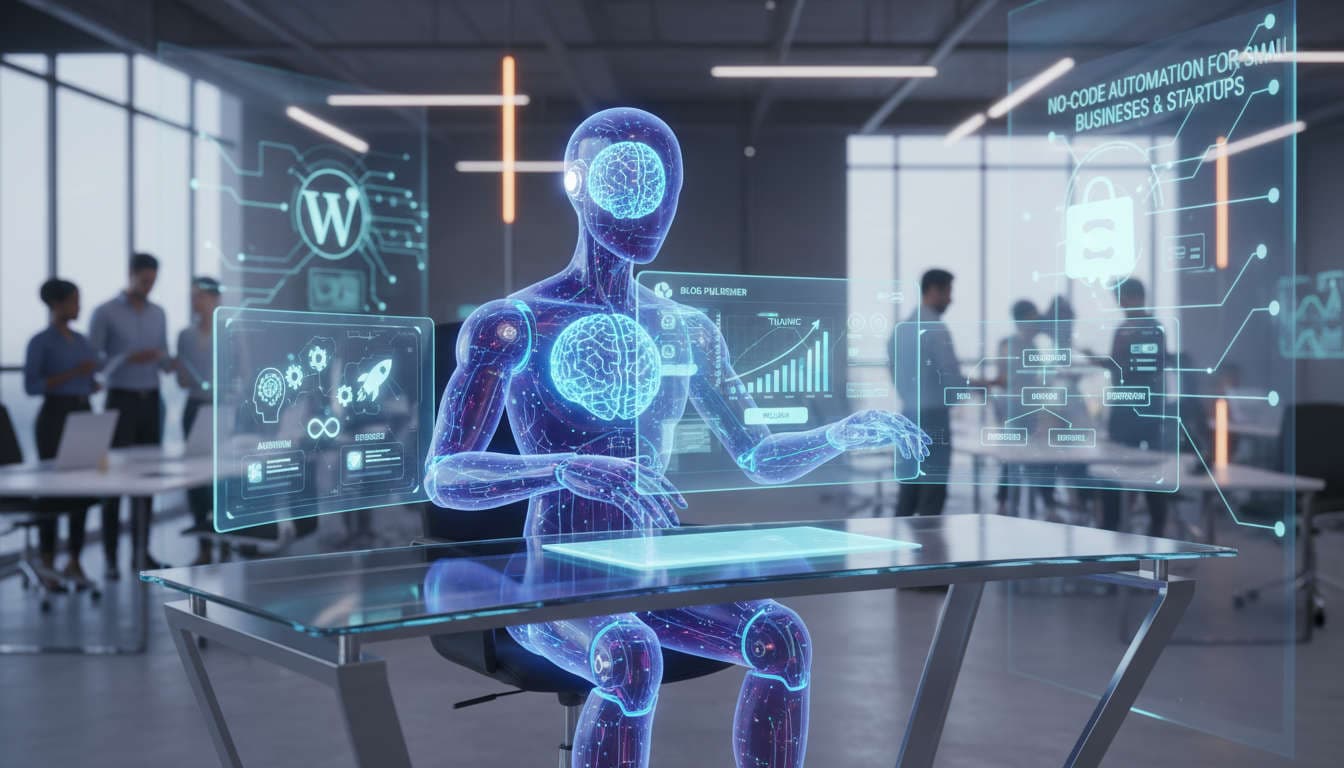The Future of AI: Agents24x7 Redefining Roles
AI platforms like Agents24x7 are redefining professional roles by automating routine tasks, augmenting expertise, and offering new opportunities for SMEs.

The Future of AI: How Agents24x7 Will Redefine Professional Roles
The future of AI is rapidly unfolding, and as platforms like Agents24x7 continue to evolve, they are poised to fundamentally reshape the landscape of professional work. From law and medicine to psychology, AI virtual employees are not just automating routine tasks – they are transforming how we think about expertise, efficiency, and the very nature of human work. In this article, we’ll explore how AI-driven agents are redefining professional roles, the societal and business implications, and how organisations can ethically and strategically prepare for this new era.
How AI Agents Are Transforming Professional Roles
AI agents such as Agents24x7 are already making significant inroads into professions like law, medicine, and psychology. By automating repetitive, data-intensive tasks, these AI virtual employees are freeing up human professionals to focus on complex decision-making and interpersonal skills. For example, in the legal sector, AI can efficiently review legal documents, flag inconsistencies, and even draft basic contracts. In healthcare, AI agents assist with preliminary medical diagnostics, triaging patients based on symptoms, and supporting doctors with up-to-date research. Similarly, in psychology, AI-driven tools can conduct initial mental health assessments, allowing psychologists to dedicate more time to nuanced therapeutic interventions.

Furthermore, this automation is not about replacing professionals entirely. Instead, it’s about augmenting their capabilities. By handling the repetitive workload, AI agents enable lawyers, doctors, and psychologists to devote more energy to tasks that require empathy, judgement, and creativity. Consequently, the integration of AI into these fields is leading to higher productivity, improved accuracy, and better client outcomes. For a deeper dive into how Agents24x7 is transforming professional roles, see The Future of AI: Agents24x7 Transforming Professional Roles.
The Societal Impact of AI Virtual Employees
As AI virtual employees become more prevalent, their impact on society is profound. While there are legitimate concerns about job displacement and workforce transformation, it’s essential to recognise the opportunities AI brings. For instance, AI agents can democratise access to professional services, making legal, medical, and psychological support more affordable and accessible to SMEs and underserved populations. Moreover, by automating routine tasks, AI allows human workers to focus on higher-value activities, potentially leading to more fulfilling careers.
However, these advancements also raise important questions about social equity, privacy, and trust. As AI-driven decisions become more common, society must grapple with issues like data security, algorithmic bias, and the transparency of automated processes. Therefore, it’s crucial for policymakers, businesses, and developers to work collaboratively in addressing these challenges, ensuring that the benefits of AI are shared equitably across all sectors.
Business Implications for SMEs Using AI Agents
For small and medium-sized enterprises (SMEs), the adoption of AI agents for SMEs offers a unique competitive edge. AI-driven platforms like Agents24x7 can provide SMEs with access to virtual legal advisors, automated medical triage, and psychological support tools that were previously only available to larger organisations. As a result, SMEs can enhance productivity, reduce operational costs, and scale their services more efficiently.

Nevertheless, integrating AI virtual employees into business operations is not without its challenges. SMEs must navigate issues such as data integration, staff training, and the ethical use of AI. However, those that successfully implement AI agents stand to gain significant advantages in terms of scalability, innovation, and customer satisfaction. To compare different AI workforce solutions, including OpenAI Agents and Agents24x7, visit OpenAI Agents vs Agents24x7 Autonomous AI Employees.
Ethical Considerations in AI Workforce Transformation
The rise of AI workforce transformation brings with it a host of ethical considerations. Accountability and transparency are paramount, especially as AI agents take on more decision-making responsibilities. Businesses must ensure that their AI systems are free from bias, regularly audited, and compliant with relevant regulations. Furthermore, maintaining human oversight is essential to prevent unintended consequences and to uphold trust in AI-driven processes.
Additionally, developers and organisations have a responsibility to safeguard user privacy and ensure that AI deployment aligns with societal values. This includes clear communication about how AI is used, who is responsible for its decisions, and how users can seek recourse if something goes wrong. By prioritising ethical standards, businesses can foster greater acceptance and trust in AI virtual employees.
Preparing for a Future with AI Agents in the Workplace
As the future of AI becomes reality, organisations must proactively prepare their workforce for the changes ahead. Upskilling and reskilling employees will be essential, as job roles evolve to emphasise collaboration between humans and AI. New positions, such as ‘AI agent managers’, will emerge to oversee and direct virtual employees, ensuring optimal performance and adherence to ethical standards.
Moreover, fostering a culture of continuous learning and adaptability will help organisations stay ahead in an AI-driven world. By embracing the opportunities presented by AI while addressing its challenges, businesses and professionals alike can thrive in the evolving workforce.
Conclusion: Embracing the Future of AI Virtual Employees
In summary, platforms like Agents24x7 are set to redefine professional roles by automating routine tasks and augmenting human expertise. While ethical and societal challenges remain, the integration of AI virtual employees offers significant opportunities for SMEs and professionals to enhance efficiency, innovation, and service delivery. By preparing for this transformation and prioritising ethical deployment, organisations can unlock the full potential of the future of AI.
Ready to Transform Your Business?
Join thousands of businesses already using AI agents to automate their workflows and boost productivity.


